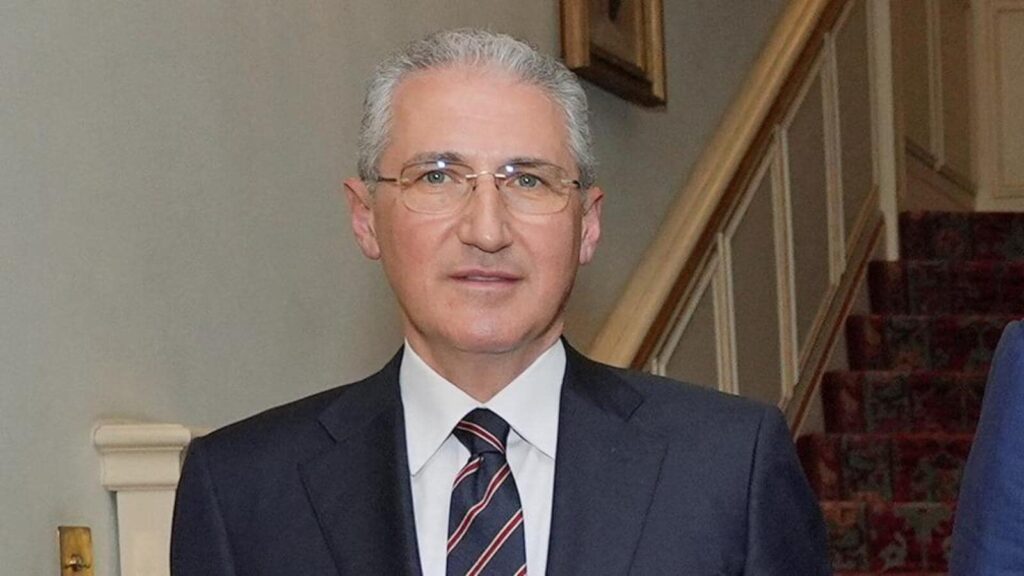Conference of the Parties to the United Nations Framework Convention on Climate Change to be held in Baku without clear political support to advance negotiations related to new fiscal targets set from a $100 billion floor for the period beyond 2025 There is no excuse for anyone to attend (COP29). said COP29 President-designate Mukhtar Babaev on Monday.
Mukhtar Babaev will be nominated as COP29 President. (Reuters)
“We have successfully narrowed down the options and the possible shapes of the landing zone are starting to appear. However, it is clear that the parties still have gaps that need to be filled,” Babiev added, “Last week in Baku, We have confirmed that Ministers understand the outstanding issues in this critical final stage of negotiations. They must now return to the capital to secure the necessary breakthroughs to be achieved. We are working urgently to bring this draft into agreement and no one will be allowed to go to COP29 without clear political support to move forward.”
“The financial needs are in the trillions of dollars, but we are hearing different views on how to achieve that ambition,” said COP29 chief negotiator Yaltin Rafiev. The amount of this funding, the so-called New Collective Quantitative Goals (NCQG), has become one of the main outstanding issues between developed and developing countries in the negotiations.
Rafiev added that a realistic target for what the public sector could directly provide and mobilize would amount to “hundreds of billions of dollars.”
The new goals must respond to the objective of addressing the needs and priorities of developing countries, including small island developing States and least developed countries. The COP29 Presidency also highlighted the importance of qualitative factors such as transparency and accessibility, and stressed the need to agree on all elements of the NCQG at COP29, officials said.
Azerbaijan’s COP29 Presidency concludes a week of intensive climate diplomacy in Baku to bridge gaps and bring early progress on key outstanding issues ahead of the United Nations Climate Change Conference (COP29) in November did. The meeting was attended by ministers, heads of delegation, negotiators and constituencies from around the world and included a meeting of two heads of delegation, a high-level ministerial dialogue, and a pre-COP meeting.
Azerbaijan’s President Ilham Aliyev said in his address to pre-COP participants: “As we enter the final stages of preparations for COP29, I call on you to work constructively and honestly for the good of humanity.While nations have common but distinct responsibilities, we must put aside our differences and support each other. We need to stop blaming and find common ground. We can’t waste time defining who is responsible for global warming and who has caused more environmental damage. .”
HT reported on September 13 that the Standing Committee on Finance of the United Nations Convention on Climate Change has announced that 98 developing countries need between $455 billion and $584 billion a year to implement their Nationally Determined Contributions (NDCs, essentially emission reduction commitments). It is estimated that this will be necessary. However, developing countries disagree, and the new joint quantitative targets (financial targets to help developing countries combat climate change after 2025) should be in trillions to match the real needs of developing countries. This was submitted to the United Nations. Experts also take exception to the Standing Committee’s report.
HT reported on August 31 that a new draft document on climate finance targets to be negotiated at the United Nations climate conference COP29 in November calls for developing countries to expect trillions of dollars in contributions from developed countries for climate change mitigation efforts. reported that it has been shown that
According to the document, the Group of Likely Developing Countries (LMDC), which includes India, expects at least $1 trillion to be mobilized annually from developed countries from 2025 to 2030, and based on evolving needs, it expects to mobilize at least $1 trillion annually from developed countries. It is said that it will be updated until.

